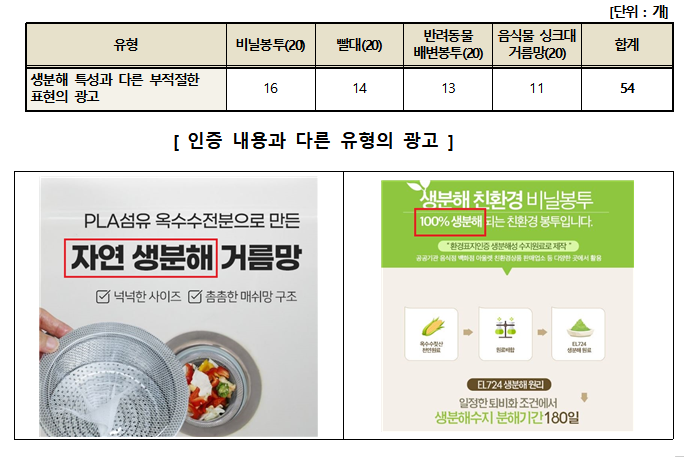
Seoul, South Korea – As consumer awareness of eco-friendly products grows, so too does the demand for biodegradable plastics. However, a recent investigation by the Korea Consumer Agency has revealed that many manufacturers are providing inaccurate information about these products.
Biodegradable plastics are designed to break down into water and carbon dioxide under specific conditions, thanks to the action of microorganisms. They are commonly used in products like kitchen sink strainers, plastic bags, pet waste bags, and straws.
A survey of 80 biodegradable products on the market found that all of them made misleading claims in their advertising or failed to provide test results or certifications on their websites. A staggering 54 products, despite being certified for composting in specialized facilities, were advertised as being "naturally biodegradable," "100% biodegradable," or "oxidatively biodegradable." Additionally, seven products provided incorrect disposal instructions, claiming they could be disposed of with food waste. Forty-one products lacked scientific evidence such as test results or certifications.
South Korea's Environment Ministry regulations prohibit advertising that uses broad environmental terms or expressions without objective, scientific backing. While the country does certify biodegradable products for use in composting facilities under specific conditions, there is no separate collection system for these items, meaning they must be disposed of in regular waste bins.
The consumer agency’s survey also revealed a significant gap between consumer perception and reality. Of the 500 consumers surveyed, 86.2% believed biodegradable products were beneficial for the environment. Among those, 88.2% expressed a willingness to purchase such products, and 79.3% were willing to pay a premium. However, only 18.2% of respondents correctly understood that these products should be disposed of in regular waste bins. A majority of consumers (81.8%) mistakenly believed that biodegradable plastics could be buried in the ground or recycled. Furthermore, 74.6% felt that they did not have enough information about the proper disposal of these products.
In response to these findings, the Korea Consumer Agency plans to share its findings with relevant government agencies and call for increased monitoring of biodegradable products on the market, as well as enhanced promotion of labeling and advertising guidelines for these products. A spokesperson for the agency emphasized the importance of verifying environmental certifications and test results when purchasing biodegradable products.
"Consumers need to be cautious when purchasing biodegradable products and should look for environmental certification marks and test results," the spokesperson advised.
[Copyright (c) Global Economic Times. All Rights Reserved.]




























